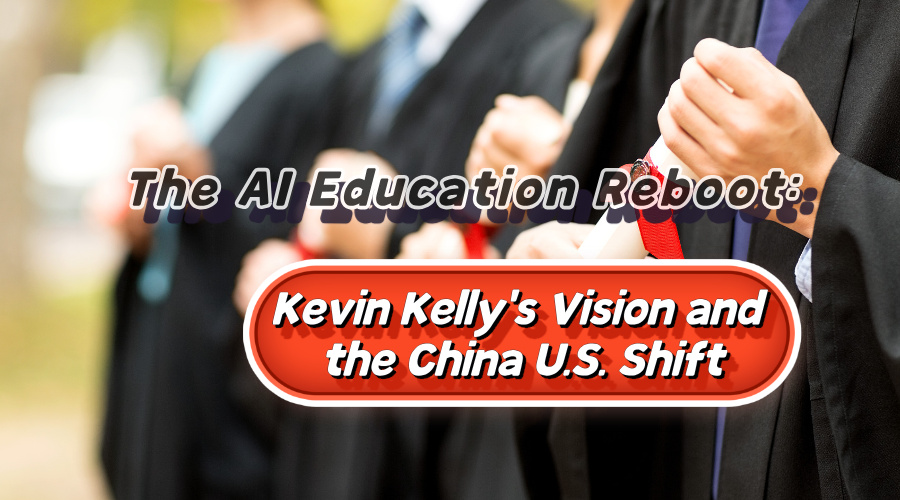2025 has been dubbed the Year One of AI Adoption. As artificial intelligence seeps into every corner of our work, learning, and daily life, education — humanity’s core tool for shaping cognition — now stands at a historic crossroads.
I. Kevin Kelly’s Forecast: Two Ways AI Will Reshape Education
Kevin Kelly, founding editor of Wired and bestselling author, believes the disruption AI brings to education will follow two main tracks:
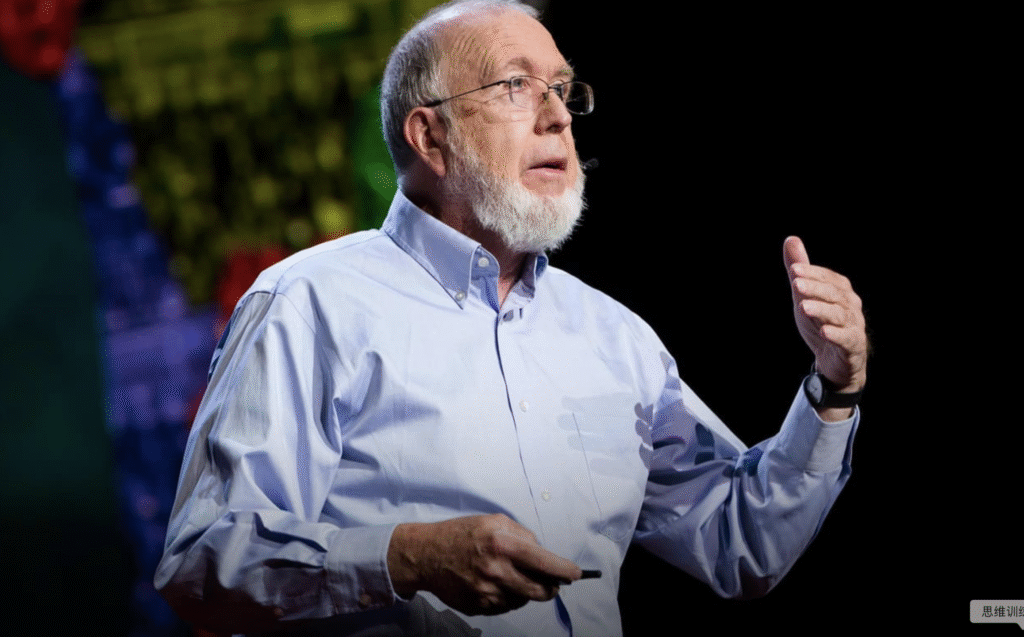
1. Traditional One-Size-Fits-All Education Is Over
Students receive tailored AI support for weaker areas while diving deeper into subjects they’re passionate about. The purpose of education is shifting — from imparting standardized knowledge to nurturing individual potential: curiosity, creativity, collaboration, and systems thinking (the ability to “see both forests and trees”). In this model, education is not about memorizing content, but about training minds to think critically and act resourcefully.
2. The Reinvention of the University Model
As more highly educated individuals take on entry-level or even gig economy jobs (a rising number of master’s and PhD graduates are now delivery drivers), the value of a traditional college degree is being questioned.
Kelly argues that universities offer three main assets today: brand prestige, alumni networks and social capital. But in 25 years? He envisions:
- Skills and portfolios may outweigh diplomas. AI-powered lifelong mentors may replace professors for lifelong upskilling.
- Virtual platforms, the emerging “mirror worlds”, could replicate or surpass the social and learning experiences of physical campuses.
- Learning will become continuous, borderless, and embedded in our daily lives.
II. China’s Shift: From Degree Obsession to Skills-First Thinking
In 2025, Zhengzhou Railway Vocational and Technical College made headlines by admitting bachelor’s degree holders into its associate-level technical programs in high-speed rail maintenance. These programs lead to a lower-level diploma than the one students already have—but offer higher employment potential.
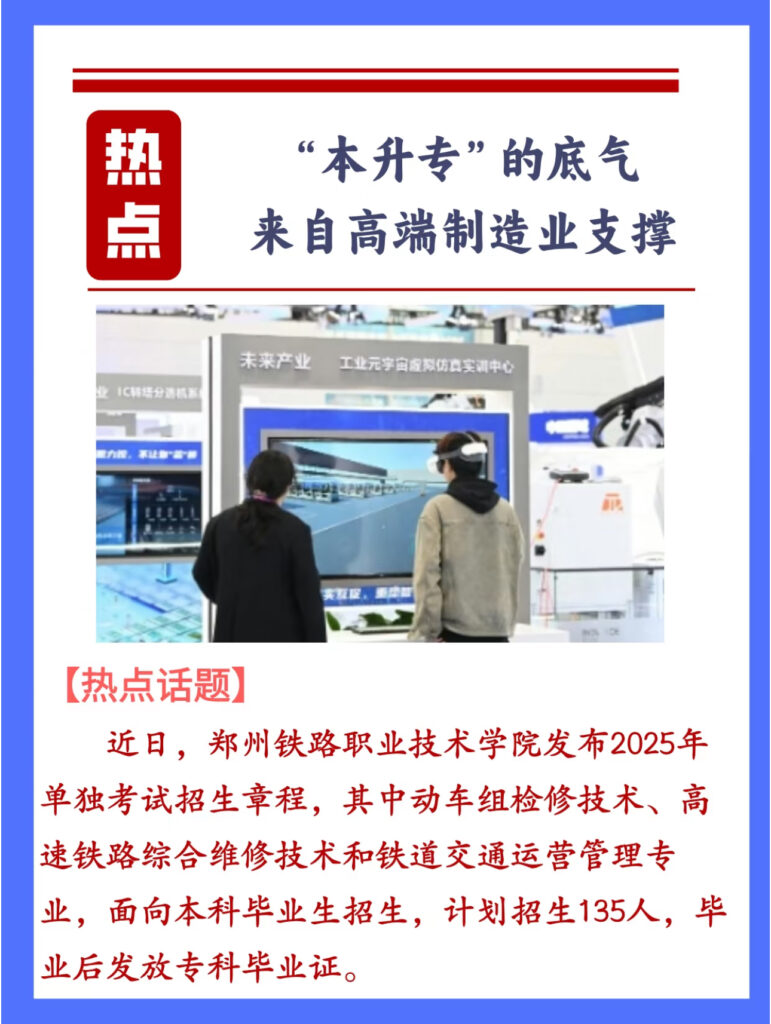
This counterintuitive trend challenges the long-standing belief that more education automatically equals better opportunities. The college first launched this program in 2022 and nearly doubled its enrollment in 2025, signalling a strong demand for skill-based education.
Last year, I visited Guizhou University of Applied Technology and was struck by the energy of its students and the relevance of its curriculum. For example, in the industrial robotics program, students must master both theoretical knowledge and hands-on skills in the installation, debugging, and maintenance of industrial robots. Graduates are in high demand.

In the Yangtze River Delta region alone, over 6,000 companies currently use industrial robots. The talent gap for skilled technicians in smart manufacturing and high-end equipment is projected to widen dramatically over the next 3–5 years. In this context, hybrid talent—those with both domain expertise and technical know-how—are emerging as the winners of the job market.
III. The Rise of Vocational Education in the U.S.
This isn’t just a Chinese phenomenon. The U.S. is undergoing its vocational renaissance:
In the United States, a quiet revolution in career and technical education (CTE) has been unfolding for years. It gained national attention with the passage of the Strengthening Career and Technical Education for the 21st Century Act (commonly known as Perkins V) in 2018. The legislation allocates over $1.4 billion annually to support CTE and sends a clear message: a university is not the only path to success. Hands-on, practice-based learning is quickly becoming one of the most viable routes to upward mobility.
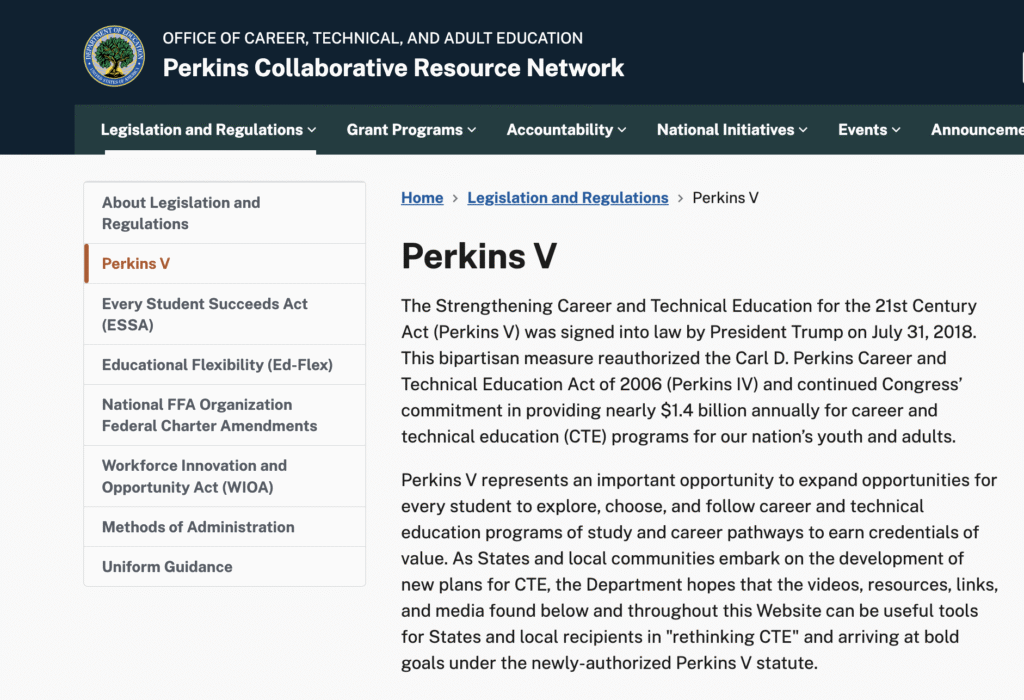
This policy shift is echoed in the job market. According to Fox Business, unemployment among recent U.S. college grads has risen to 5.8% — the highest since 2021 and significantly above the national average of 3.5–4%. Meanwhile, those with vocational associate degrees — especially in technical fields — enjoy much lower unemployment rates.
This demand surge has also fueled investor interest in “edtech for skills.” One standout example is Lumion, a company originally focused on student financing. Sensing the opportunity in vocational education, Lumion pivoted to provide SaaS solutions for technical schools. It raised $10.7 million in seed funding — backed in part by the state of Wyoming.
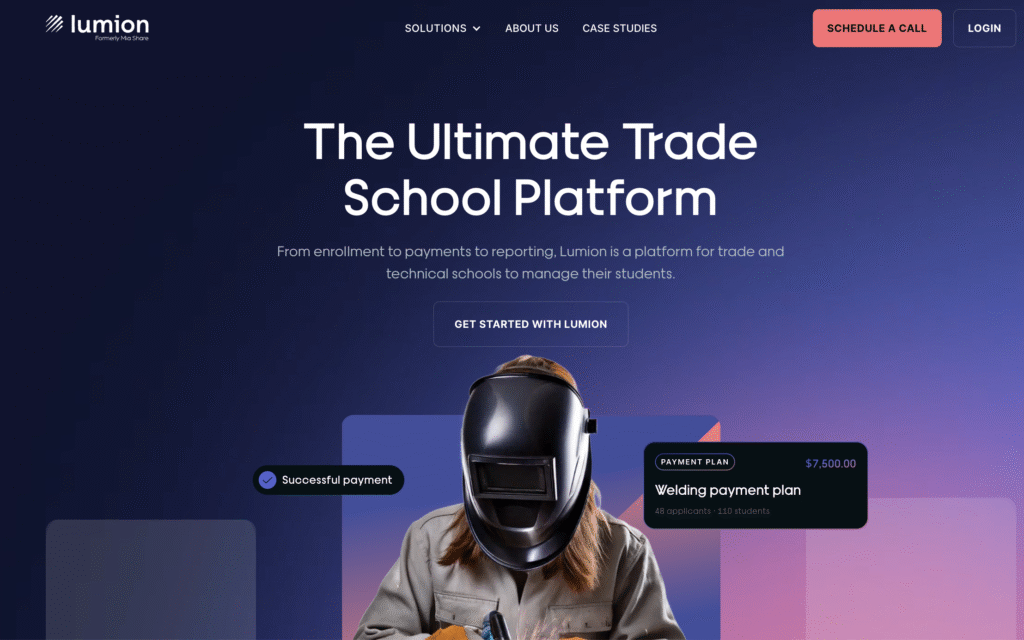
Since then, Lumion’s growth has been explosive: its revenue, customer base, and team have all tripled in the past year. Today, it serves over 260 schools across 29 industries and supports more than 100,000 students. Its software powers student recruitment, tuition management, and performance tracking. To date, it has facilitated over 140,000 tuition transactions, supported 1,690 school administrators, and is estimated to contribute $20 billion in workforce value. This thriving “policy + market + capital” ecosystem mirrors the momentum behind vocational education in China.
IV. Final Thoughts: From Degree Premium to Skills Premium
From Zhengzhou’s unconventional admissions, to Lumion’s VC-backed rise; from China’s high job placement for vocational grads, to America’s growing preference for skills over diplomas—a global shift is underway.
The common thread? Vocational and technical education is no longer a fallback option. It’s becoming a strategic choice.
This transformation is not just about education—it’s a collective human response to the AI-driven economic shift. In a world where algorithms reshape industries daily, skills that convert knowledge into action are proving to be more valuable than credentials alone.

Even more profound is how this evolution is redefining success itself. When practical skills outweigh university rankings, when professional dignity is no longer tied to academic pedigree, we may be witnessing the most meaningful form of educational equality: the ability for every worker to find purpose, value, and opportunity in an age of rapid change.
The future belongs to problem-solvers, not just degree-holders. Education, at its best, is not about producing diploma owners—it’s about cultivating people who can create real-world impact.

